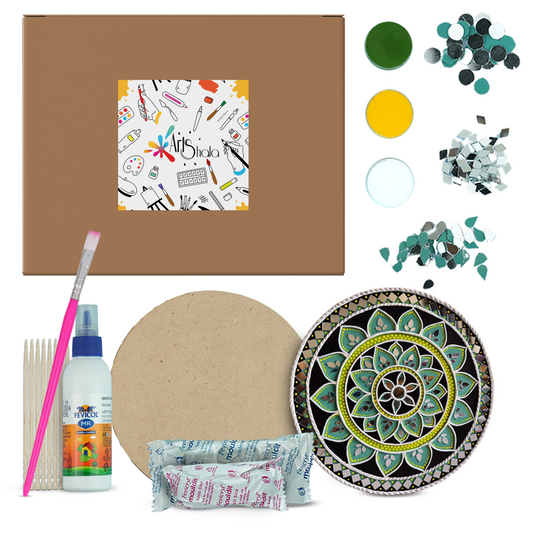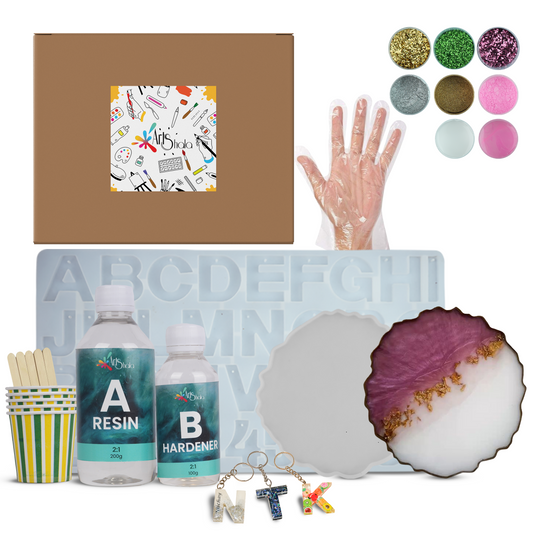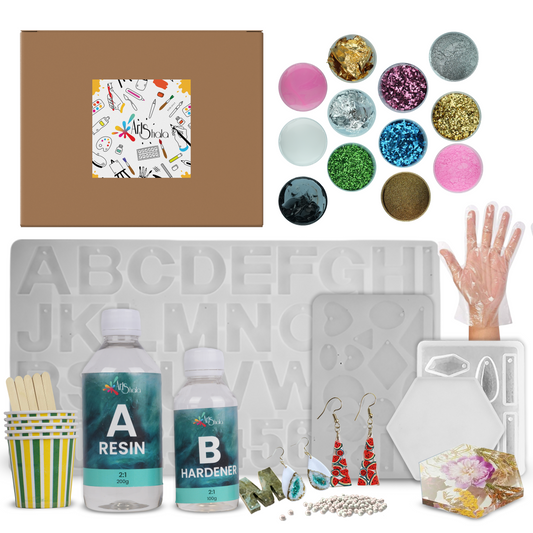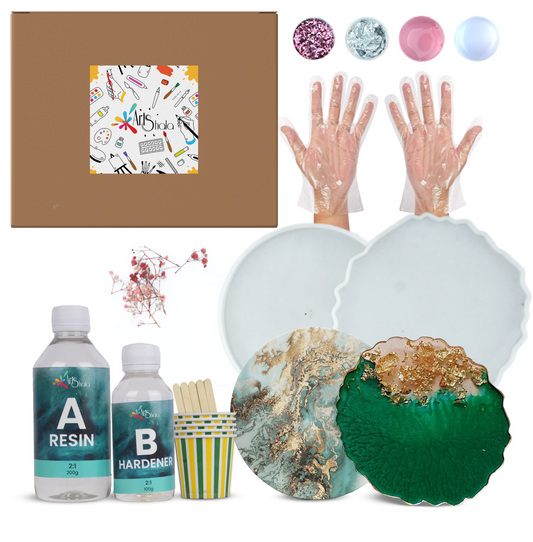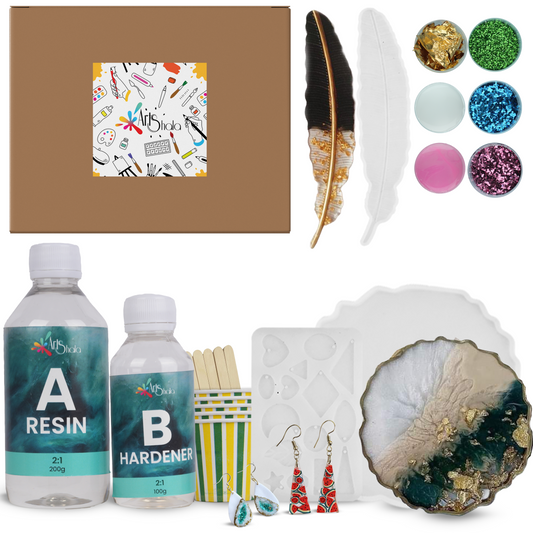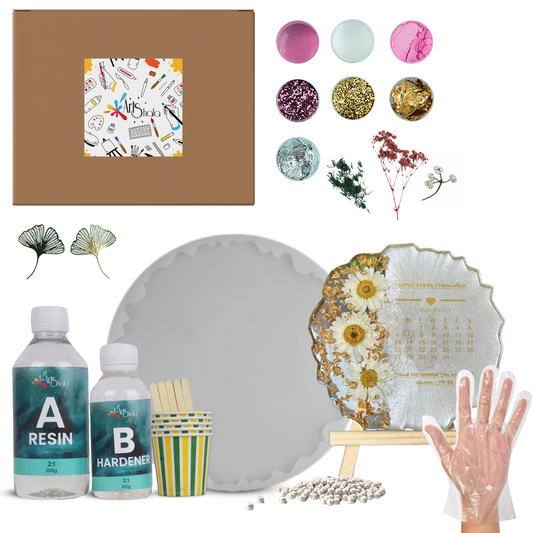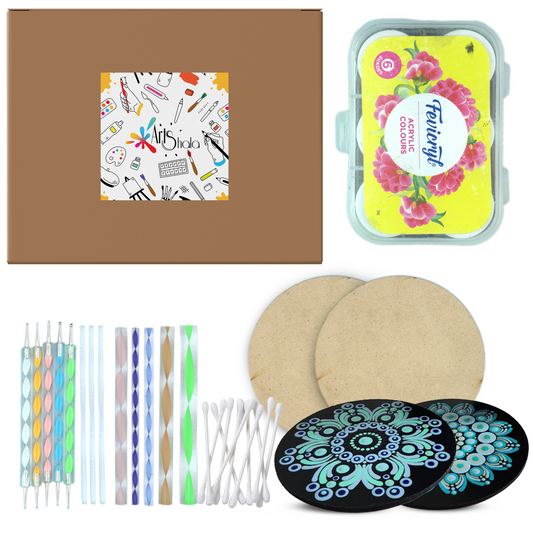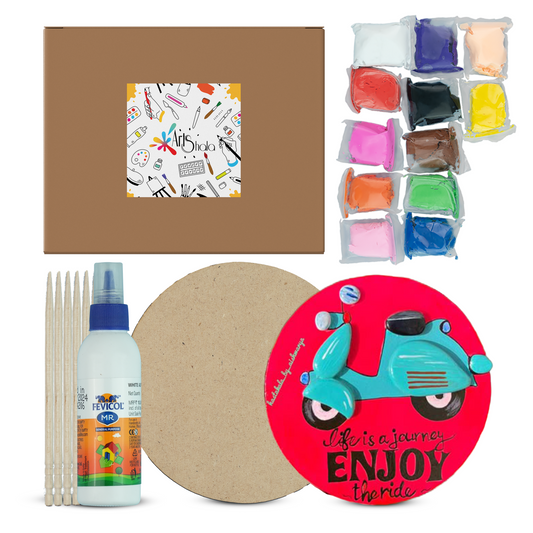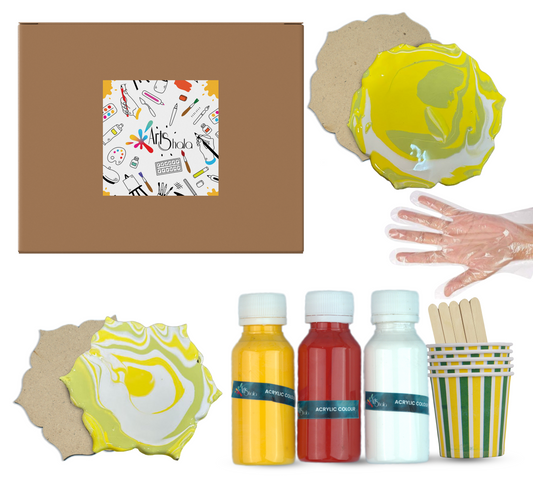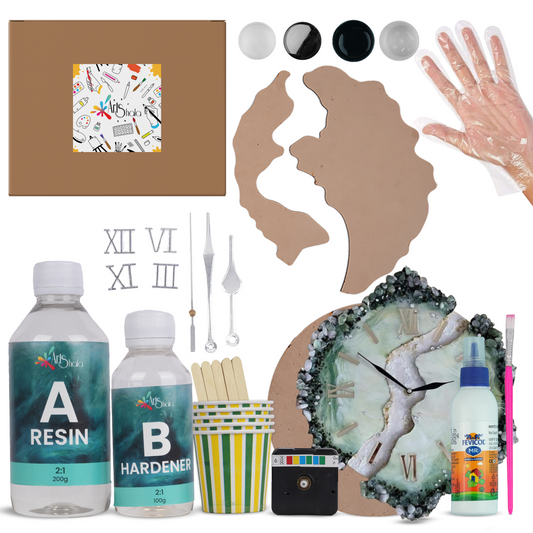What Can You Expect to Learn in Resin Art Workshops?
A resin art workshop is a place where you can easily learn and explore the fascinating world of resin art. Led by experienced artists, these resin art workshops will provide you with hands-on training and guidance to create your resin art pieces. One of the greatest advantages of attending a workshop is the opportunity to learn from experts in the field. These artists have years of experience and knowledge, and they are passionate about sharing their expertise with you. They will guide you through the entire process, from selecting the right materials to applying various techniques and ensuring that you gain a comprehensive understanding of this art.
So, are you ready to dive into the world of resin art? Whether you are a beginner or have some experience, a resin art workshop can be a great way to expand your skills. Following are some of the points that you can expect to learn in any resin art workshop.
Introduction to Resin Art
Resin art is a form of art that involves using epoxy resin to create stunning art pieces. It provides endless possibilities for creativity, allowing artists to experiment with colours, textures, and techniques. In resin art workshops, you receive an introduction to this unique art form and learn about its applications in diverse projects.
Different Types of Resins
Resins used in resin art workshops are generally epoxy resins. However, there are different types of resins available. Understanding the differences between these resins is crucial as they have distinct properties and applications.
Types of Resins
UV Resin
UV resin is a unique single-component substance that hardens quickly under UV light. Applying it is simple – just pour it over your item or add colour before pouring. It is used in thin layers, has a shorter shelf life of 6 months, and requires an expensive UV lamp for curing.
Polyurethane Resin
Polyurethane resin is widely used in industries like appliances and automotive. It is a durable product. To create moulds, you need to combine its components and pour them into the mould. It's also used to reduce slipperiness and as an electrical encapsulate.
Epoxy Resin
Epoxy resin is a versatile and durable type of resin, making it a very popular choice for various projects. It can be easily customized to suit specific needs and is affordable. However, it may turn yellow in direct sunlight and therefore requires a dry environment to fully dry.
Polyester Resin
Polyester resin is a versatile material used for various purposes, such as creating models and constructing ponds, pools, and boats. Its strength and water resistance make it ideal. Mixing the resin and hardener determines the curing time. Despite being affordable, it has a strong smell.
Precautions and Safety Measures
Working with resin requires taking certain precautions to ensure your safety. In a resin art workshop, you will be guided on the safety measures you must follow. Following are some of the points that you will get to know about resin art:
- Always follow the directions and read the warnings on the product labels of epoxy resin.
- Avoid overexposure to epoxy by understanding the safe exposure levels and practising good work habits.
- Take precautions to prevent skin contact with resins and hardeners, as even minor contact can lead to chronic health problems.
- Ensure good ventilation in your workspace to minimise exposure to vapours.
- Make sure to protect your eyes by wearing safety glasses or goggles.
- Maintain a clean workspace to avoid incidental contact with epoxy resin.
- Protect your lungs and respiratory tract by avoiding inhaling epoxy vapours and sanding dust.
The Significance of Proper Resin Mixing Techniques
Mastering resin mixing is essential to create flawless resin art pieces. A workshop will provide you with a step-by-step guide on how to measure and mix resin and hardener accurately.
To begin with, you will get to learn how to gather your equipment, which includes eye protection, disposable gloves, clean mixing cups, clean mixing sticks, and a small digital scale or disposable graduated cylinders for accurate measurements. It's important to start with clean cups and brushes to avoid any contamination. Remember to use suitable containers that can handle the chemical reaction and avoid glass or foam containers.
Choosing the right resin is essential. Then comes the measurement. In a workshop, you will get to know that measuring by weight or volume differs slightly. If you are measuring by weight, use a digital scale and pour the epoxy first, noting the amount poured. If you are measuring by volume, pour the epoxy and hardener into a graduated measuring cup, ensuring the meniscus aligns with the required level.
Now, it's time to learn how to mix the resin. You will be taught how to thoroughly mix the resin and hardener for 2-3 minutes using a mixing stick. Scrape the sides, corners, and bottom of the container to ensure proper blending. Continue mixing until the mixture has a consistent, streak-free appearance.
By following these steps and using accurate measurements throughout your resin art workshop, you will be on your way to mastering resin mixing and usage.
Resin Tools and Must-Have Essentials
To create resin art, you will need specific tools and products. In a workshop, you will be introduced to these essential items. You will learn how to use these tools effectively to manipulate the resin and create stunning effects. Here is a list of essential products and tools for working with resin:
- Resin: Opt for high-quality epoxy resin or UV resin, depending on your specific needs.
- Mixing Cups: Look for ones with clear markings to ensure proper ratios.
- Mixing Sticks: Use a wooden or plastic stick
- Resin Pigments: To add vibrant colours to your resin projects
- Glitter: Enhance the visual appeal and create eye-catching effects.
- Heat Gun/Torch: A heat gun or a small handheld torch is used to eliminate any bubbles that may form in the resin during the curing process.
- Resin Molds Release Spray: To ensure easy release once your project has cured.
- Sandpaper: It helps to achieve a polished and professional finish.
- Safety Equipment: Gloves, goggles, and a respirator mask
Resin Calculation for Any Project
Calculating the right amount of resin for your project is crucial to avoid wastage or insufficient coverage. In a resin art workshop, you will learn how to calculate the correct amount of resin needed based on the surface area, depth, and desired effects. This skill will enable you to plan and execute your future resin art projects with precision.
Read Also - How Are Anime Resin Art Figures Made?
Conclusion
A resin art workshop is a unique experience that will allow you to learn anything and everything. It offers a creative outlet for artists of all levels and provides an opportunity to learn from experts, explore different techniques, and connect with like-minded individuals.
Arts Shala’s resin art workshops are an excellent way to learn and enhance your resin art skills. From understanding different types of resins and pigments to mastering resin mixing techniques and using essential tools, you will gain valuable knowledge and hands-on experience. So, if you're ready to unlock your creativity and dive into the fascinating world of resin art, Contact Us right away and join our resin art workshop.



